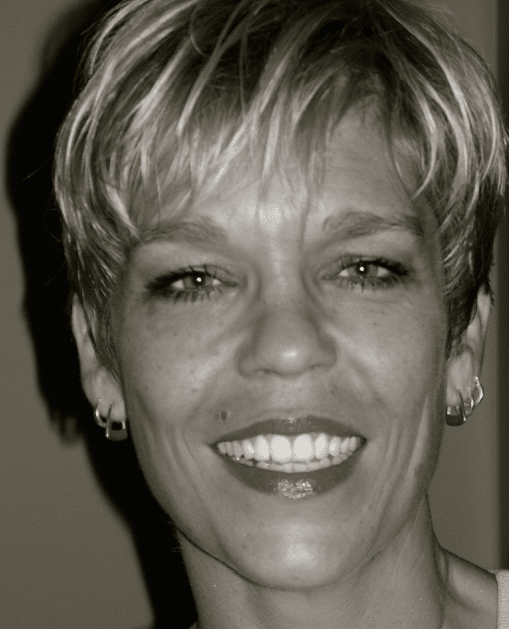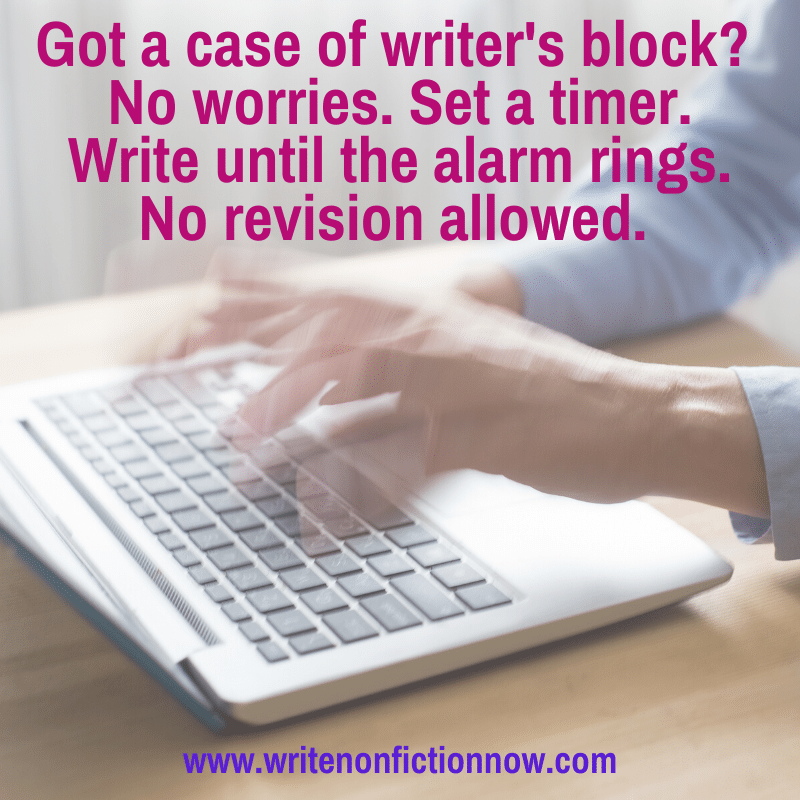Many situations can bring on a bad case of writer’s block. For instance, writing the opening paragraphs of your nonfiction book might be just the right amount of pressure to bring your writing to a standstill—before you even get going!
Indeed, the first page of your book can feel the most challenging to write, because they’re the most important. This content is a crucial marketing tool because potential readers see it when they use a Look Inside feature online, such as while book shopping on Amazon.com. If these people don’t like what you have to say or how you say it, they won’t buy your book.
That’s a bit of pressure…more than enough to bring on writer’s block.
But an opening paragraph isn’t the only time you can encounter writer’s block. When I’ve had a couple of days break away from writing, I struggle to get back into the creative groove. It’s the use-it-or-lose-it scenario. If you don’t give your writing muscles a daily workout to keep them limber, they stiffen up.
And sometimes, we just don’t feel like writing, because there are too many distractions. If I try to force myself to start writing when I’m not in the right frame of mind, it’s a lost cause.
Overcoming Writer’s Block
Whatever the cause, writer’s block undermines your confidence. Therefore, it’s essential to change your perspective from I can’t write to I just can’t access what I need to write.
I think of writer’s block as a dam that’s blocked the creative flow and reduced my writing output to a trickle. My job as a writer is to clear that dam and open myself to the flood of ideas and inspiration waiting to surge through.
I’ve discovered just the tool to break down even the largest damn and get the words flowing again—freewriting.
Freewriting typically involves writing with an imposed time limit and without thinking about what you are writing during that period. That means no revising, editing, checking spelling, or doing research. You just write.
Don’t Battle Through the Block
Before I discovered freewriting, I used to sit at a blank computer screen and get annoyed, wallowing in the belief that I was an imposter. How could I call myself a writer when I couldn’t write? What a fraud.
I’d try to battle through the block, and the frustration would build. I’d get so discouraged by my lack of inspiration I’d end up shutting down my computer and walking away. This was the beginning of a vicious cycle because that failure to produce words was at the forefront of my mind when I contemplated my next writing session. Worse still, it confronted me when I sat down again to write.
As a bit of a perfectionist, if I can’t succeed at a task, I’m reluctant to try. I think that’s why many writers get disillusioned and stop. I didn’t have the luxury of giving up, because I abandoned my corporate career to become a freelance writer and digital nomad. I had to search for a solution to writer’s block and found it in freewriting.
From Analytical to Creative
I’m an analytical nonfiction author, and I find my inner critic often gets in the way of my creativity. I used to struggle to access the words and ideas I knew exist inside of me, that is until I discovered freewriting and meditation.
I always thought of these techniques as New Age-y with no place in my analytical and methodical writing method. When I’m struggling with a new idea or concept, I do what I always do—I conduct research to understand it. I started looking at how our conscious, subconscious, and unconscious work in unison, and realized how freewriting could be an effective tool to unblock that creative flow.
Your Conscious, Subconscious, and Unconscious Mind
A lot has been written about this thought-trinity, but here’s my brief understanding and attempt to explain how our conscious, subconscious, and unconscious thoughts flow.
Think of these three areas of your mind working together like a pyramid. Your conscious mind is at the top, your subconscious is in the middle, and your unconscious mind is the foundational layer at the bottom.
- Your conscious mind can only process five to seven bits of information at a time. It’s the analytical part of your brain that embraces thinking and planning.
- When you bypass your conscious mind, you can access stored information in your subconscious. This is where your creativity lives. Your subconscious is also the conduit that allows unconscious thoughts to bubble through it to your conscious mind.
- The beliefs, habits, and patterns you established as a child are in your unconscious mind, and they are what drive your adult behaviors.
Writer’s block happens when you rely on your conscious mind to be the source of your creativity and not the conduit. I mentioned earlier about writer’s block being a dam. Your conscious mind is that dam that gets in the way of your ability to access the creativity waiting patiently in the other areas of your mind.
Use Freewriting to Tap into Thoughts and Ideas
There are multiple methods writer’s use to tap into those thoughts and ideas just below the surface, but they all share one common trait—writing so fast that the conscious mind just can’t catch up so that your inner critic is silenced.
In a future post, I’ll go into my seven-point plan for achieving a successful freewriting session using meditation and breathing to overcome your writer’s block and increase your word count.
Have you struggled with writer’s block? Leave a comment below and let me know what methods you’ve used to overcome this common writing challenge.
About the Author
Jay Art ale abandoned her corporate career to become a digital nomad and full-time writer. She’s an avid blogger and a nonfiction author helping travel writers and travel bloggers achieve their self-publishing goals. Join her at Birds of a Feather Press where she shares tips, advice, and inspiration to writers with an independent spirit.
ale abandoned her corporate career to become a digital nomad and full-time writer. She’s an avid blogger and a nonfiction author helping travel writers and travel bloggers achieve their self-publishing goals. Join her at Birds of a Feather Press where she shares tips, advice, and inspiration to writers with an independent spirit.
 Would you like to write and publish nonfiction work, like articles, blog posts, books, or reports? Check out the Nonfiction Writers’ University. Get the basic education you need and the coaching to help you succeed as a nonfiction writer. Take advantage of monthly live educational and group coaching events. Enjoy a 30-day trial membership for only $1.
Would you like to write and publish nonfiction work, like articles, blog posts, books, or reports? Check out the Nonfiction Writers’ University. Get the basic education you need and the coaching to help you succeed as a nonfiction writer. Take advantage of monthly live educational and group coaching events. Enjoy a 30-day trial membership for only $1.
Do you want a more advanced approach to your nonfiction writing education? Join the Nonfiction Writers’ University MASTERS program. Receive ongoing live Certified High Performance Coaching, Author Training, and Authorprenuership Training as well as monthly educational and group coaching events. Learn all the steps to becoming a successful—and profitable—author. Discover how (finally) to write consistently, boldly, enthusiastically, and productively. Develop the mindsets, strategies, habits of the world’s most successful writers. Click here to learn more.
